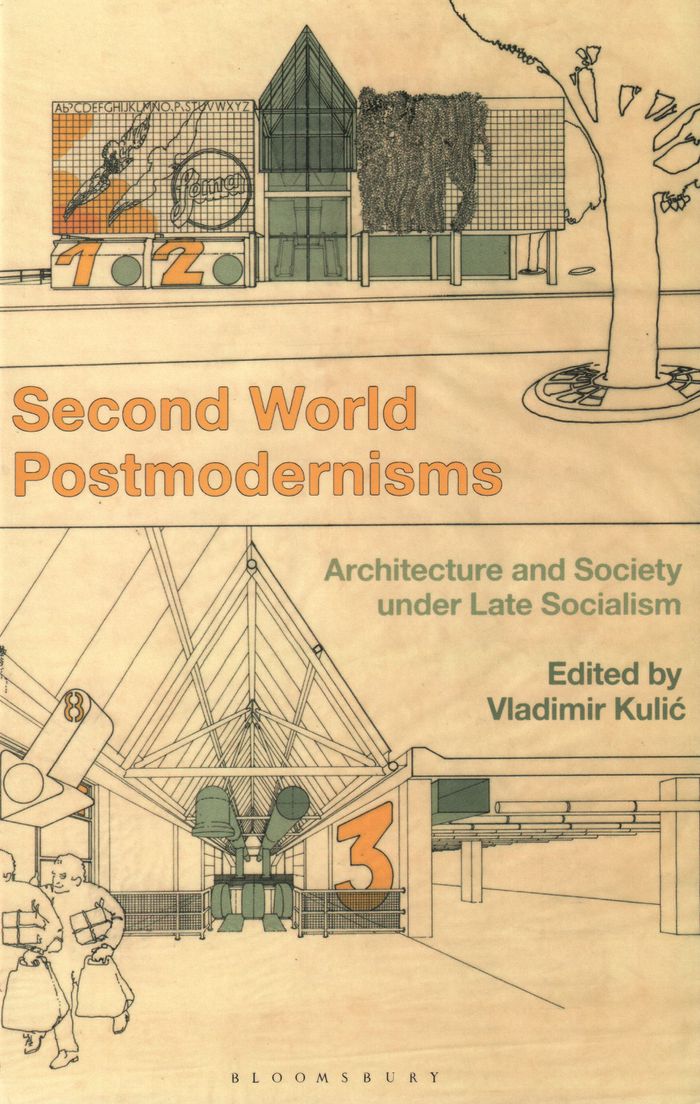$87.00
(disponible sur commande)
Résumé:
Squeezed between the two rival Cold War blocs, Yugoslav architecture consistently adhered to a modernist trajectory. As a founding nation of the Non-Aligned Movement, Yugoslavia became a major exporter of modernist architecture to Africa and the Middle East in a postcolonial world. By merging a variety of local traditions and contemporary international influences in the(...)
juin 2018
Toward a concrete utopia: architecture in Yugoslavia, 1948-1980
Actions:
Prix:
$87.00
(disponible sur commande)
Résumé:
Squeezed between the two rival Cold War blocs, Yugoslav architecture consistently adhered to a modernist trajectory. As a founding nation of the Non-Aligned Movement, Yugoslavia became a major exporter of modernist architecture to Africa and the Middle East in a postcolonial world. By merging a variety of local traditions and contemporary international influences in the context of a unique Yugoslav brand of socialism, often described as the “Third Way,” local architects produced a veritable “parallel universe” of modern architecture during the 45 years of the country’s existence. This remarkable body of work has sparked recurrent international interest, yet a rigorous interpretative study never materialized in the United States until now.
$52.50
(disponible en magasin)
Résumé:
Bogdan Bogdanovic (1922–2010) was a Yugoslav architect, theorist, professor and a one-time mayor of Belgrade. His idiosyncratic memorials to the victims and heroes of World War II, scattered around the former Yugoslavia, continue to attract attention today, more than 25 years after the country’s collapse. The monuments, cemeteries, mausoleums, memorial parks,(...)
Bogdanovic by Bogdanovic: Yugoslav memorials through the eyes of their architect
Actions:
Prix:
$52.50
(disponible en magasin)
Résumé:
Bogdan Bogdanovic (1922–2010) was a Yugoslav architect, theorist, professor and a one-time mayor of Belgrade. His idiosyncratic memorials to the victims and heroes of World War II, scattered around the former Yugoslavia, continue to attract attention today, more than 25 years after the country’s collapse. The monuments, cemeteries, mausoleums, memorial parks, necropolises, cenotaphs and other sites of memory Bogdanovic designed between the early 1950s and late 1970s occupy a unique place in the history of modern architecture, redrawing the boundaries between architecture, landscape and sculpture in varied and unexpected ways. This book presents Bogdanovic’s built oeuvre through his own eyes, in a selection of nearly 50 color photographs of his memorials, which the architect took soon after the completion of each project.
Monographies photo
$138.00
(disponible sur commande)
Résumé:
If postmodernism is indeed ''the cultural logic of late capitalism,'' why did typical postmodernist themes like ornament, colour, history and identity find their application in the architecture of the socialist Second World? How do we explain the retreat into paper architecture and theoretical discussion in societies still nominally devoted to socialist modernization?(...)
Second world postmodernisms: architecture and society under late socialism
Actions:
Prix:
$138.00
(disponible sur commande)
Résumé:
If postmodernism is indeed ''the cultural logic of late capitalism,'' why did typical postmodernist themes like ornament, colour, history and identity find their application in the architecture of the socialist Second World? How do we explain the retreat into paper architecture and theoretical discussion in societies still nominally devoted to socialist modernization? Exploring the intersection of two areas of growing scholarly interest - postmodernism and the architecture of the former socialist world - this edited collection stakes out new ground in charting architecture's various transformations in the 1970s and 80s. Fourteen essays together explore the question of whether or not architectural postmodernism had a specific Second World variant.
Théorie de l’architecture
$45.50
(disponible sur commande)
Résumé:
This volume presents focused case studies of modern architecture in three realms—political, religious, and domestic—that address our very essence as human beings. Several essays explore developments in Czechoslovakia, Romania, and Yugoslavia and document a modernist design culture that crossed political barriers, such as the Iron Curtain, more readily than previously(...)
Sanctioning modernism : architecture and the makin of postwar identities
Actions:
Prix:
$45.50
(disponible sur commande)
Résumé:
This volume presents focused case studies of modern architecture in three realms—political, religious, and domestic—that address our very essence as human beings. Several essays explore developments in Czechoslovakia, Romania, and Yugoslavia and document a modernist design culture that crossed political barriers, such as the Iron Curtain, more readily than previously imagined. Other essays investigate various efforts to reconcile the concerns of modernist architects with the traditions of the Roman Catholic Church and other Christian institutions. And a final group of essays looks at postwar homebuilding in the United States and demonstrates how malleable and contested the image of the American home was in the mid-twentieth century. These inquiries show the limits of canonical views of modern architecture and reveal instead how civic institutions, ecclesiastical traditions, individual consumers, and others sought to sanction the forms and ideas of modern architecture in the service of their respective claims or desires to be modern.
Théorie de l’architecture



